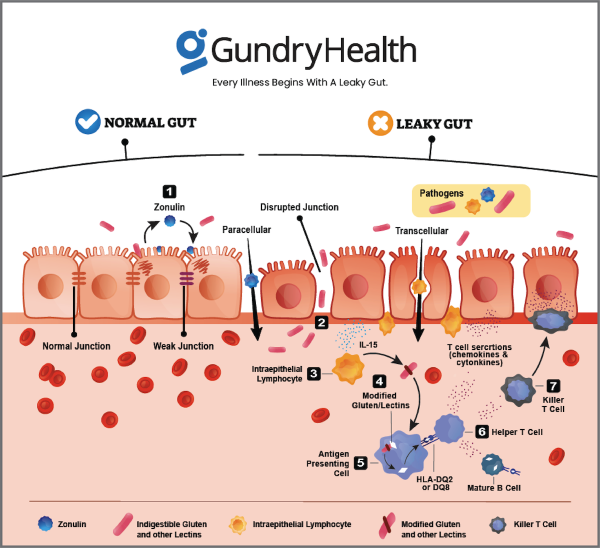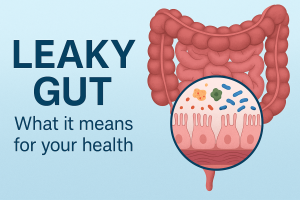Understanding Premenstrual Dysphoric Disorder: An Insight by Gundry Health
Premenstrual dysphoric disorder (PMDD) is a severe, sometimes debilitating extension of premenstrual syndrome (PMS). At Gundry Health, we aim to provide comprehensive information about PMDD to help you comprehend, manage, and seek appropriate treatment for this condition.
Premenstrual dysphoric disorder (PMDD) is a severe form of premenstrual syndrome (PMS) that affects women of childbearing age. PMDD causes physical and emotional symptoms every menstrual cycle in the week or two before your period. Symptoms usually go away two to three days after your period starts. PMDD is a chronic medical condition that needs attention and treatment123.
What is PMDD?
Premenstrual dysphoric disorder (PMDD) is a severe form of premenstrual syndrome (PMS) that affects women of childbearing age. PMDD causes physical and emotional symptoms every menstrual cycle in the week or two before your period. Symptoms usually go away two to three days after your period starts. PMDD is a chronic medical condition that needs attention and treatment123. Unlike PMS, the symptoms of PMDD are severe enough to interfere with work, social activities, and relationships.
Symptoms of PMDD
The symptoms of PMDD are similar to those of PMS, but more severe. Symptoms of PMDD usually show up the week before you start your period and last until a few days after it begins. Most of the time they’re severe and exhausting, and they can keep you from daily activities. Symptoms of PMDD include415263:
- Mood swings
- Depression or feelings of hopelessness
- Intense anger and conflict with other people
- Tension, anxiety, and irritability
- Decreased coordination
- Painful menstruation
- Diminished sex drive
- Appetite changes
- Food cravings
- Hot flashes
- Fluid retention
- Respiratory problems
- Eye complaints
- Gastrointestinal symptoms
- Difficulty concentrating
- Fatigue and low energy
- Insomnia
- Suicidal thoughts
Diagnosing PMDD
Diagnosis of PMDD involves tracking and recording symptoms for at least two menstrual cycles, to distinguish them from other psychiatric disorders. Your healthcare provider may perform a physical examination and other tests to rule out underlying conditions.
Causes
PMDD is thought to be an abnormal reaction to hormone changes during the menstrual cycle, which can cause a chemical imbalance in the brain. Other factors that may contribute to PMDD include genetics, environmental factors, and underlying mental health conditions41768.
Treatment Options
There are several treatment options available for PMDD, including lifestyle changes, medications, and therapy. Treatment should be based on symptom severity, personal preferences, and plans to become pregnant910113.
- Lifestyle changes: Regular exercise often reduces premenstrual symptoms. Cutting back on caffeine, avoiding alcohol, and stopping smoking may ease symptoms too. Getting enough sleep and eating a healthy diet can also help612.
- Medications: Antidepressants that slow the reuptake of serotonin, such as selective serotonin reuptake inhibitors (SSRIs), are effective for many women with PMDD. SSRIs are the first-line treatment for severe PMS or PMDD. These medications are generally taken daily. Other medications that may be prescribed include anxiolytics, hormonal therapies, and painkillers or anti-inflammatory drugs9101183.
- Therapy: Talking therapy and counseling can help you learn coping strategies for dealing with PMDD symptoms. Cognitive-behavioral therapy (CBT) and interpersonal therapy (IPT) are two types of therapy that have been found to be effective for PMDD93.
- Surgery: In rare cases, surgery may be recommended for women with severe PMDD who have not responded to other treatments. A hysterectomy, which involves removing the uterus, can eliminate PMDD symptoms. However, this is a major surgery and should only be considered as a last resort93.
Living with PMDD: Lifestyle Changes and Practical Tips
Living with PMDD can be challenging, but lifestyle modifications can help manage your symptoms:
- Regular Exercise: Physical activity can help reduce feelings of depression and fatigue.
- Balanced Diet: Avoiding caffeine, alcohol, and sugary foods close to menstruation can help reduce symptoms.
- Stress Management: Techniques such as yoga, meditation, and deep-breathing exercises can help manage stress levels.
It’s important to rule out other conditions that cause symptoms similar to PMDD, such as depression, dysthymia, anxiety, and hypothyroidism. A key challenge in PMDD diagnosis is differentiating between mild premenstrual symptoms, which may be annoying but are not disabling, and those severe enough to interfere with daily life106.
In conclusion, PMDD is a severe form of PMS that can negatively affect your life, relationships, and career. If you consistently experience severe premenstrual symptoms that interfere with your daily activities, see your doctor. Treatment options are available that can help manage symptoms and improve your quality of life.
How Gundry Health Can Help
Remember, PMDD is a complex condition and what works for one person may not work for another. It’s important to communicate openly with your healthcare provider, adhere to your treatment plan, and stay informed about your condition.
At Gundry Health, we’re committed to helping you navigate your health journey with PMDD. Visit our website for more information or to schedule an appointment with our specialists. Together, we can manage this condition and improve your quality of life.
Get personalized care and recommendations for Premenstrual Dysphoric Disorder from Dr Gundry-Approved program
If you’re looking for more guidance about Premenstrual Dysphoric Disorder disease than this short list of recommendations, Dr. Gundry’s unique health program is now available to you (without needing an appointment at one of Dr. Gundry’s two, waitlist-only West Coast clinics).
Thanks to the pioneering work of Dr. Gundry and his team at Gundry Health, patient care team trained in Dr. Gundry’s unique holistic methods are now available to help you craft your own personalized Premenstrual Dysphoric Disorder program.
It’s easy to get started.
Simply click the link below to get more information about personalized Premenstrual Dysphoric Disorder treatment plan options, so you can get expert analysis, diagnostic care, and a plan for tackling Premenstrual Dysphoric Disorder, arthritis, or other autoimmune diseases.
Each patient care team member at Gundry Health is Board Certified and trained in Dr. Gundry’s renowned approach to functional medicine and care.
Get your personal lab data and talk to a U.S. licensed doctor. Click Here.







